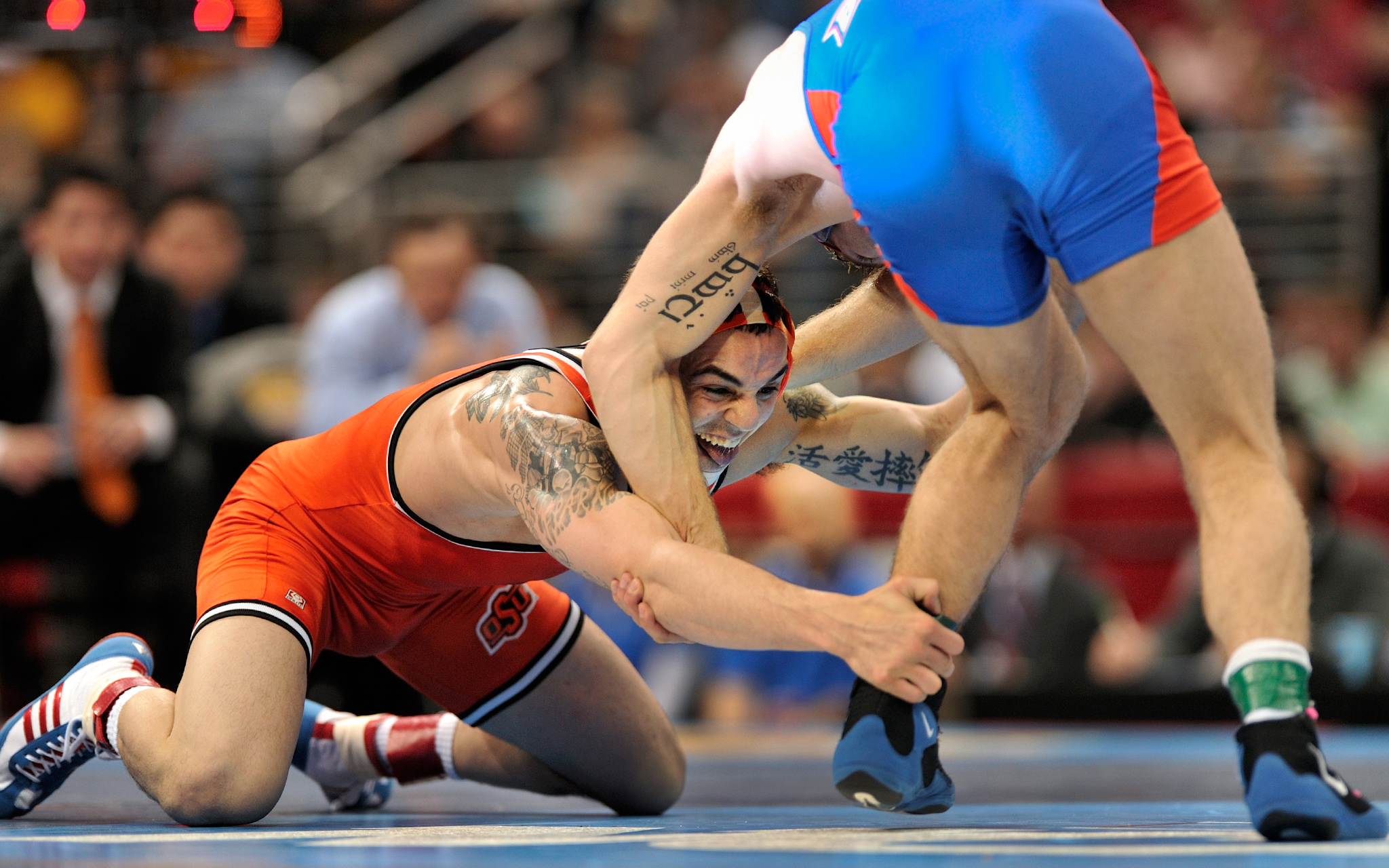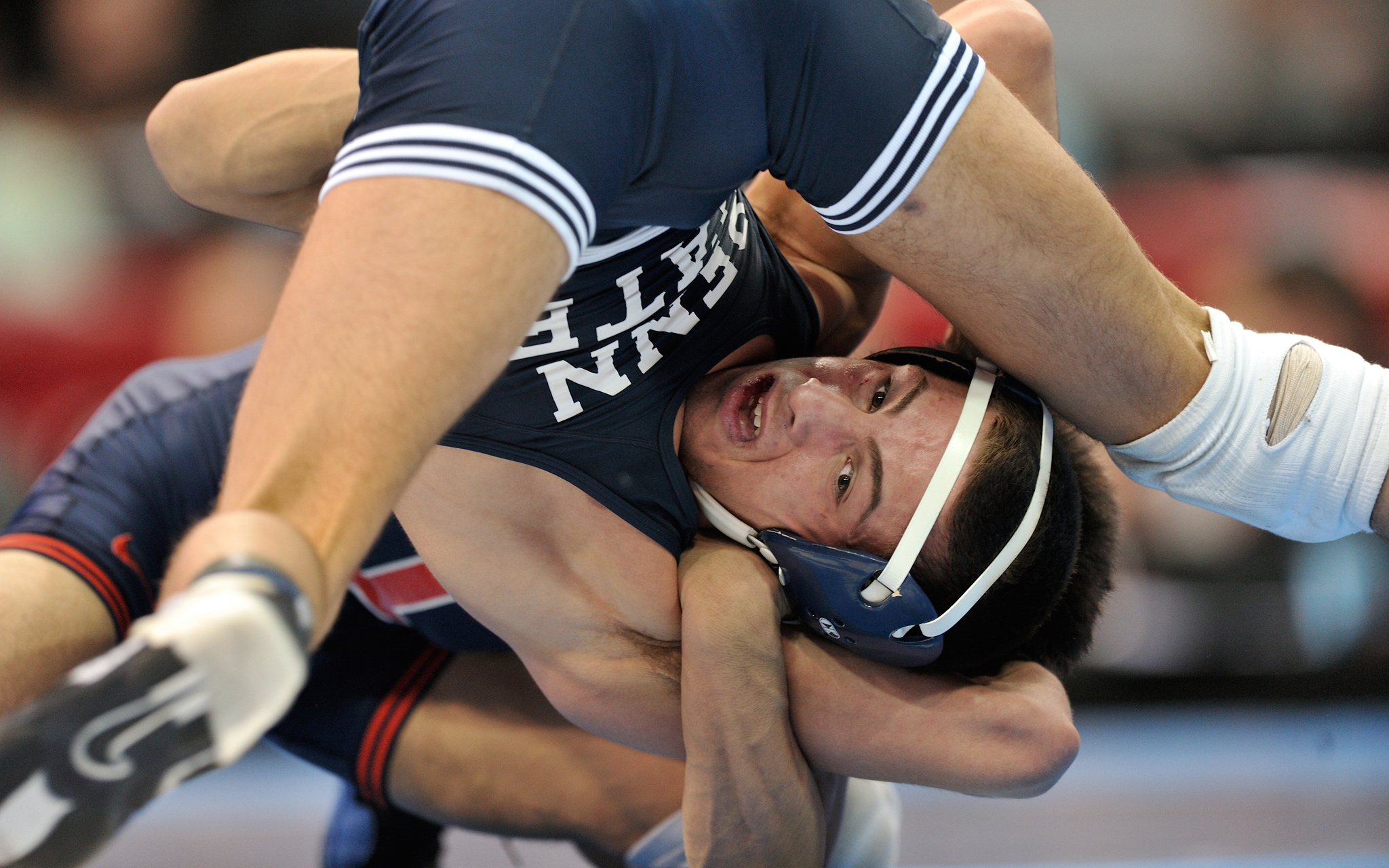When it comes to NCAA Wrestling Championships, you’re stepping into a world where passion meets precision, and every move counts. It’s not just a competition; it’s an experience that brings together some of the best collegiate wrestlers in the nation. Picture this: the energy in the arena is electrifying, the crowd is roaring, and the athletes are locked in intense battles. Whether you’re a die-hard wrestling fan or just diving into the sport, the NCAA Wrestling Championships promise unforgettable moments. So, buckle up, because we’re about to take you on a journey through the heart of this incredible event.
This isn’t just any wrestling tournament. The NCAA Wrestling Championships have a history that stretches back decades, and it’s a platform where young athletes showcase their skills on a national stage. It’s a crucible for future Olympic champions and professional wrestlers, and every match is a testament to dedication, strength, and strategy. You’ll see why this event has captured the hearts of fans across the country.
What makes the NCAA Wrestling Championships so special? It’s the combination of athleticism, tradition, and sheer determination. Every wrestler who steps onto the mat has trained tirelessly, and the competition is fierce. It’s not just about winning; it’s about proving yourself against the best in the nation. So, let’s dive in and explore everything you need to know about this thrilling event.
Read also:Pauline Road Fire The Story Behind The Flames And Its Impact
Here’s your comprehensive guide to the NCAA Wrestling Championships. From the history and rules to the top competitors and how you can catch the action, we’ve got you covered. Whether you’re a seasoned fan or a newcomer, this article will give you all the tools you need to enjoy the spectacle.
Understanding the NCAA Wrestling Championships
History and Evolution
The NCAA Wrestling Championships have been around for nearly a century, and its roots run deep in the world of collegiate sports. First held in 1928, the event has grown from a small gathering into one of the most prestigious wrestling tournaments in the world. Over the years, the championships have seen countless athletes rise to prominence, many of whom went on to achieve greatness in the international arena.
Back in the day, the competition was relatively straightforward, with fewer weight classes and less media attention. But as wrestling’s popularity grew, so did the championships. Today, it’s a multi-day event that attracts thousands of spectators and millions of viewers tuning in from home. The evolution of the sport and the tournament itself is a fascinating story of growth and adaptation.
One of the key factors in the championships’ success has been its ability to adapt to changing times. From introducing new weight classes to embracing modern technology for scoring and broadcasting, the NCAA Wrestling Championships have stayed relevant while maintaining their core values of excellence and sportsmanship.
The Rules and Regulations
How It Works
If you’re new to wrestling, understanding the rules might seem a bit daunting at first, but trust me, it’s not as complicated as it looks. The NCAA Wrestling Championships follow a set of guidelines designed to ensure fairness and safety for all participants. Each match is contested in three periods, and wrestlers earn points based on takedowns, escapes, reversals, and near-falls.
Here’s a quick rundown of how the scoring works:
Read also:Lipscomb The Ultimate Guide To Discovering This Vibrant Place
- Takedown: Two points for bringing your opponent to the mat while maintaining control.
- Escape: One point for getting out of your opponent’s control.
- Reversal: Two points for reversing control while your opponent is on top of you.
- Near-fall: Two or three points for almost pinning your opponent.
Matches can end in a variety of ways, including decision, technical fall, or pin. A pin occurs when a wrestler holds both of their opponent’s shoulders to the mat for a few seconds, resulting in an immediate win. The technical fall happens when a wrestler builds up a significant lead, usually 15 points or more, depending on the level of competition.
Top Competitors and Teams
Who to Watch
Every year, the NCAA Wrestling Championships bring together some of the most talented wrestlers in the country. These athletes have proven themselves on the collegiate circuit, earning their spot through hard work, dedication, and a sprinkle of natural talent. Let’s take a look at some of the top competitors and teams to watch in this year’s tournament.
Team Standouts: Universities like Penn State, Oklahoma State, and Iowa have consistently produced top-tier wrestlers. These schools are known for their rigorous training programs and strong coaching staff, making them perennial contenders for the team title. Keep an eye on their performances, as they often set the pace for the rest of the field.
Individual Stars: Among the individuals to watch, names like Spencer Lee from Iowa and Roman Bravo-Young from Penn State have made waves in recent years. These wrestlers not only dominate on the mat but also inspire their teammates with their work ethic and determination. Their matches are must-sees for any wrestling enthusiast.
The Championship Format
How It All Comes Together
The NCAA Wrestling Championships are structured in a way that ensures the best of the best rise to the top. Wrestlers compete in various weight classes, ranging from 125 pounds to 285 pounds, and the tournament is divided into rounds that gradually narrow down the field. The competition begins with preliminary rounds, followed by quarterfinals, semifinals, and finally, the championship matches.
Each round is crucial, as wrestlers must perform at their peak to advance. The pressure is intense, especially as the tournament progresses, and every match can be a potential upset. The format is designed to test not only physical prowess but also mental fortitude, as athletes face the best competitors in their weight class.
One of the highlights of the championships is the consolation bracket, where wrestlers who lose in the early rounds have a chance to redeem themselves and earn All-American status. This adds another layer of excitement to the tournament, as athletes fight not just for the title but also for recognition and respect in the wrestling community.
Preparation and Training
What It Takes to Compete
Behind every successful wrestler at the NCAA Wrestling Championships lies months, if not years, of preparation. Training regimens are rigorous, combining strength, conditioning, and technical skills to create well-rounded athletes. Wrestlers work closely with coaches to develop strategies tailored to their strengths and the challenges they’ll face in competition.
A typical training day might include:
- Early morning cardio sessions to build endurance.
- Strength training focused on core muscles and explosive power.
- Drills and sparring to refine technique and simulate match conditions.
- Mental preparation and visualization exercises to stay focused under pressure.
Beyond physical training, wrestlers must also manage their weight carefully. Each weight class has strict limits, and athletes must maintain their weight while ensuring they have enough energy to perform at their best. This balance requires discipline and careful planning, often involving nutritionists and dietitians.
The Role of Coaches
Guiding the Next Generation
Coaches play a pivotal role in the success of wrestlers at the NCAA Wrestling Championships. They’re not just instructors; they’re mentors, strategists, and motivators. A great coach can make all the difference, helping athletes refine their skills, build confidence, and overcome obstacles both on and off the mat.
Some of the most successful programs in the NCAA have legendary coaches at the helm. Figures like Cael Sanderson of Penn State and Mark Cody of Iowa have become household names in the wrestling world. Their expertise and leadership have been instrumental in shaping some of the best wrestlers in the nation.
Coaches also focus on the mental aspect of the game, teaching athletes how to handle pressure and maintain composure during high-stakes matches. They instill values of perseverance, teamwork, and sportsmanship, ensuring that wrestlers leave the championships not just as better athletes but as better people.
Fans and Spectators
Experiencing the Action
For fans, the NCAA Wrestling Championships offer an unparalleled experience. The atmosphere in the arenas is electric, with thousands of spectators cheering on their favorite teams and athletes. It’s not just about watching matches; it’s about being part of a community that celebrates the sport and its traditions.
If you’re planning to attend, here are a few tips to enhance your experience:
- Arrive early to secure a good seat and soak in the pre-match excitement.
- Learn the basics of scoring and rules to better appreciate the action.
- Bring a comfortable chair or cushion, as matches can last several hours.
- Engage with other fans and share in the camaraderie that makes the event special.
For those who can’t attend in person, live broadcasts and streaming services make it easy to follow the action from home. With commentators providing insights and analysis, you’ll feel like you’re right there in the arena.
Impact on Wrestlers’ Careers
Beyond the Mat
Performing well at the NCAA Wrestling Championships can have a significant impact on a wrestler’s career. Success in the tournament often leads to opportunities at the national and international levels, including spots on the U.S. national team and participation in the Olympics. Many former NCAA champions have gone on to become household names in the world of wrestling and beyond.
But the championships also provide valuable life lessons that extend beyond the sport. Wrestlers learn about discipline, resilience, and the importance of hard work. These skills translate into success in other areas of life, whether it’s in business, education, or personal endeavors.
Future of the NCAA Wrestling Championships
Looking Ahead
As the sport continues to evolve, so too does the NCAA Wrestling Championships. The future looks bright, with advancements in technology, increased media coverage, and growing interest in wrestling worldwide. Initiatives to promote diversity and inclusion in the sport are also gaining momentum, ensuring that the championships remain relevant and inclusive for all athletes.
The NCAA is also exploring ways to expand the event, possibly by adding more weight classes or creating new formats to engage fans and athletes alike. With the right strategies in place, the championships are poised to continue their legacy as one of the premier events in collegiate sports.
Conclusion
The NCAA Wrestling Championships are more than just a competition; they’re a celebration of athleticism, tradition, and the human spirit. From the rich history and intricate rules to the incredible athletes and passionate fans, there’s something for everyone to enjoy. Whether you’re a lifelong fan or just discovering the sport, the championships offer an unforgettable experience.
So, what are you waiting for? Dive into the world of NCAA Wrestling Championships, and experience the excitement for yourself. Leave a comment below and let us know your favorite moments from past tournaments. And don’t forget to share this article with your fellow wrestling enthusiasts!
Remember, the NCAA Wrestling Championships aren’t just about winning; they’re about the journey, the growth, and the memories that last a lifetime. Keep supporting the athletes, the coaches, and the spirit of the sport, and together, we’ll keep the tradition alive and thriving.
Table of Contents


